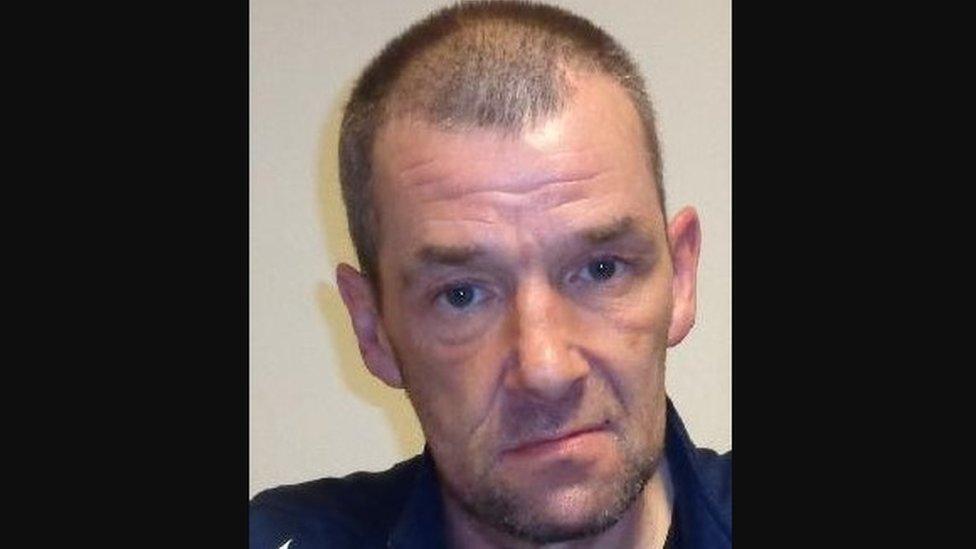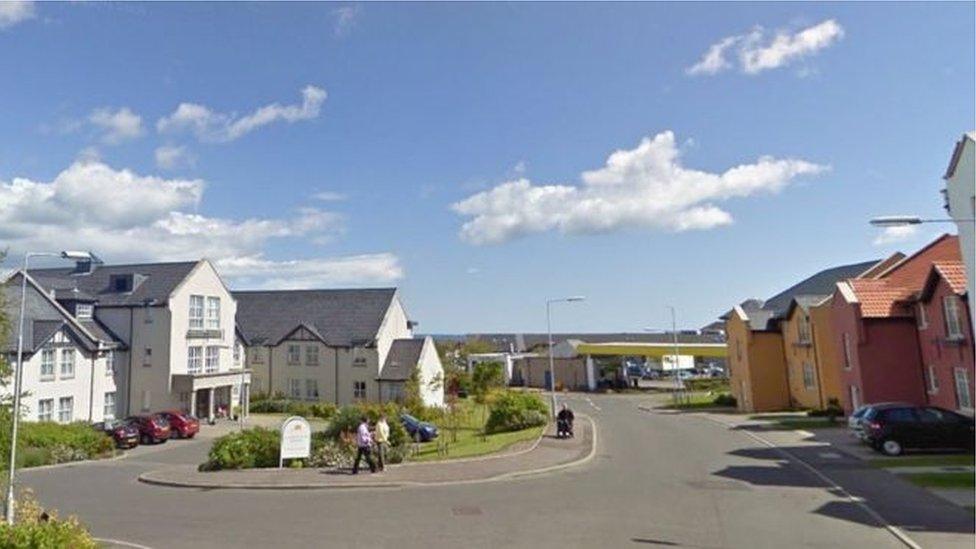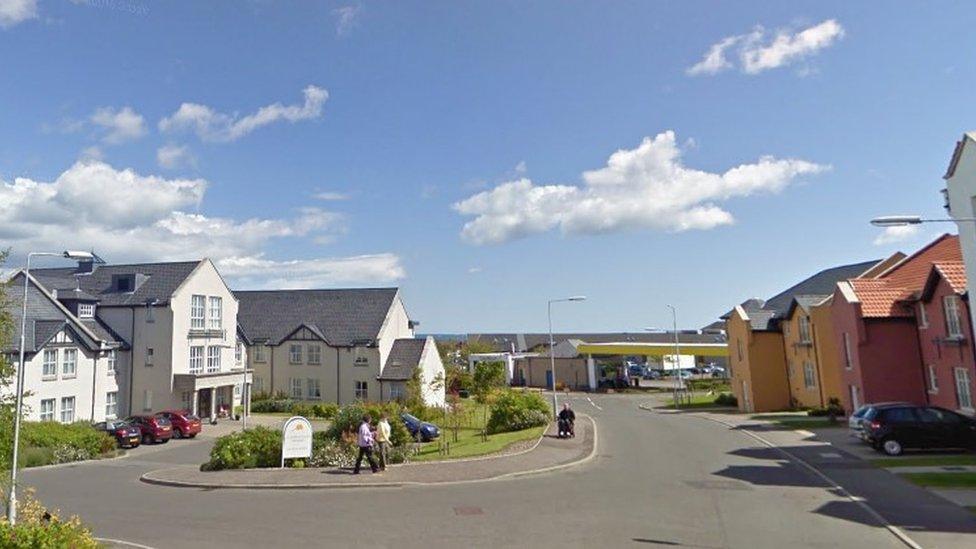Police 'could have prevented' woman's murder in St Andrews
- Published

Charles Gordon was found guilty of murdering his sister Elizabeth Bowe
The death of a woman who was murdered by her brother may have been prevented if police had responded to her 999 call properly, the police watchdog has said.
Elizabeth Bowe, 50, was strangled by Charles Gordon, 52, at her flat in St Andrews, Fife, on 17 September 2016.
The Police Investigations and Review Commissioner (Pirc) heard she called police for help before she was attacked.
Gordon was later jailed for life. He must serve at least 17 years in prison.
The Pirc heard Ms Bowe, who police described as a vulnerable person, had called officers at about 20:00 on the day she died - a full 90 minutes before they responded.
She told them her brother had stolen her phone and she was in a "domestic violence situation".
'Emergencies only'
Ms Bowe said she required her telephone to "call for help" if she needed it.
The service advisor created a police incident report and attached a "marker" - information about a known address - which highlighted that Ms Bowe had been the victim of domestic violence by her estranged partner.
They told Ms Bowe that police officers would attend and categorised the call as a Grade 2 priority - a call requiring an urgent police response within 15 minutes.
The commissioner's report found that at 20:12 the controller then attempted to contact Ms Bowe via her brother's mobile phone and, on receiving no reply, left a voicemail message.
It said: "Elizabeth, this is Police Scotland here. It's regarding your so-called theft of a phone by your brother. Your brother is in the house.
"He has not stolen your phone. The police are not going to attend. And also the 999 calls are for emergencies only, certainly not for this type of incident."
In her report, external to the Crown Office and Procurator Fiscal Office, Pirc commissioner Kate Frame concluded that Ms Bowe's death may have been prevented if police had attended earlier.

Ms Bowe was found badly injured in Bobby Jones Place in St Andrews
She said: "Had Police Scotland timeously dispatched resources in accordance with their call priority system following Elizabeth Bowe's 999 call one hour and 24 minutes earlier, officers may have arrived at her home prior to her receiving the injuries from which she died and thereby prevented her death."
The findings of the report were welcomed by Ms Bowe's family.
A statement on their behalf said: "The past year has put a terrible strain on the family and we now just want to move on with our lives.
"The circumstances of the death of Elizabeth, who was a caring mother and grandmother, was a shock to us all and we appreciate the support we have received, but would now wish our privacy to be respected.
"The Pirc report has made a number of recommendations on how Police Scotland should deal with calls from vulnerable people. We hope these will be taken forward so that changes are made to avoid something similar happening again."
Those recommendations included:
Taking action to ensure that calls for assistance from known vulnerable people receive an appropriate response
Ensuring that staff in the police area control Room at Bilston Glen receive appropriate advice, training and guidance on the identification, management and prioritisation of calls from vulnerable people
This includes recording relevant information and undertaking necessary checks to ensure that the failures identified in the death of Elizabeth Bowe do not happen again.
A Police Scotland spokesman said the force accepted the findings and "continued to ensure that the recommendations are implemented".
'Downgrading incidents'
A statement added: "Our thoughts remain with the family and friends of Elizabeth Bowe and all those affected by her death.
"Since the incident in September 2016, Police Scotland have given risk and vulnerability training to over 800 staff, which assists in identifying and assessing risk at the first point of contact as well as capturing the right and relevant information.
"Police Scotland receives in excess of tens of thousands of calls every year regarding vulnerable persons and further guidance has been given to call handlers and area control room staff with regards to the downgrading and closure of incidents.
"A revised process is now in place for incidents where vulnerability is identified which ensures closer supervisory scrutiny."
- Published19 July 2017

- Published2 June 2017

- Published30 September 2016
